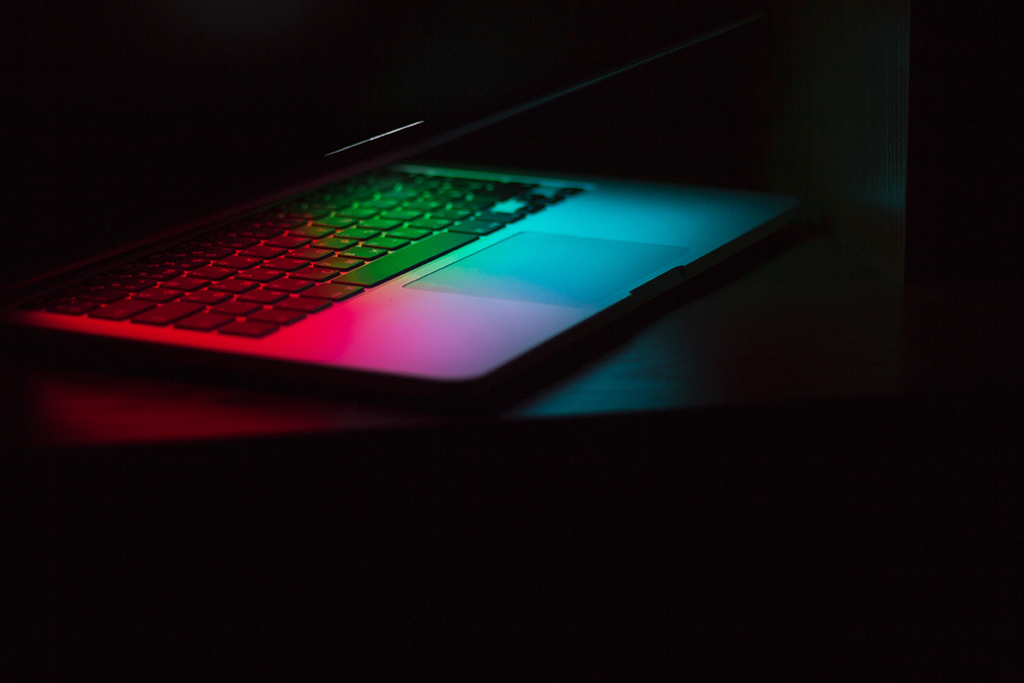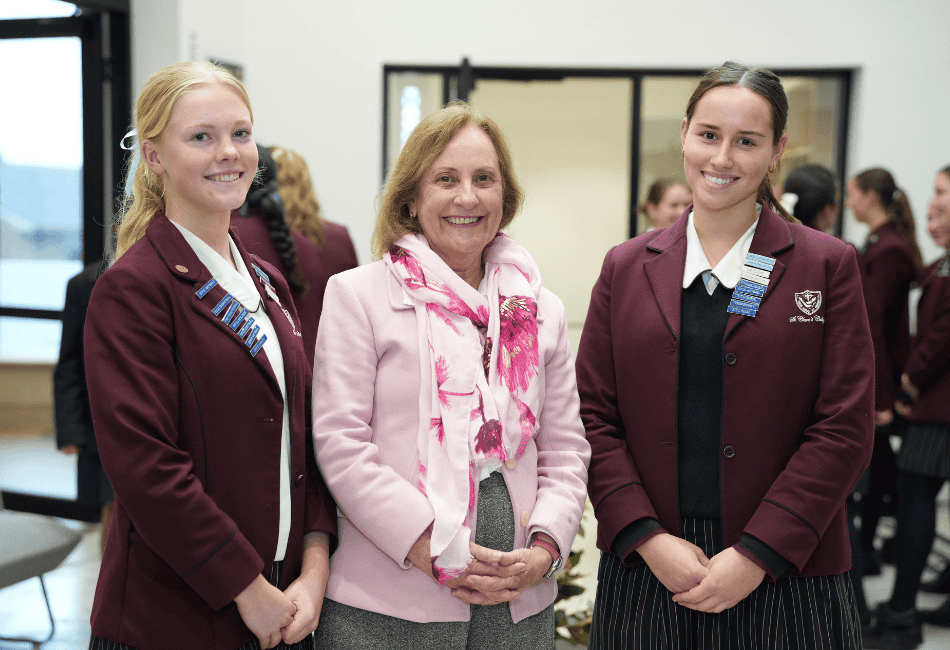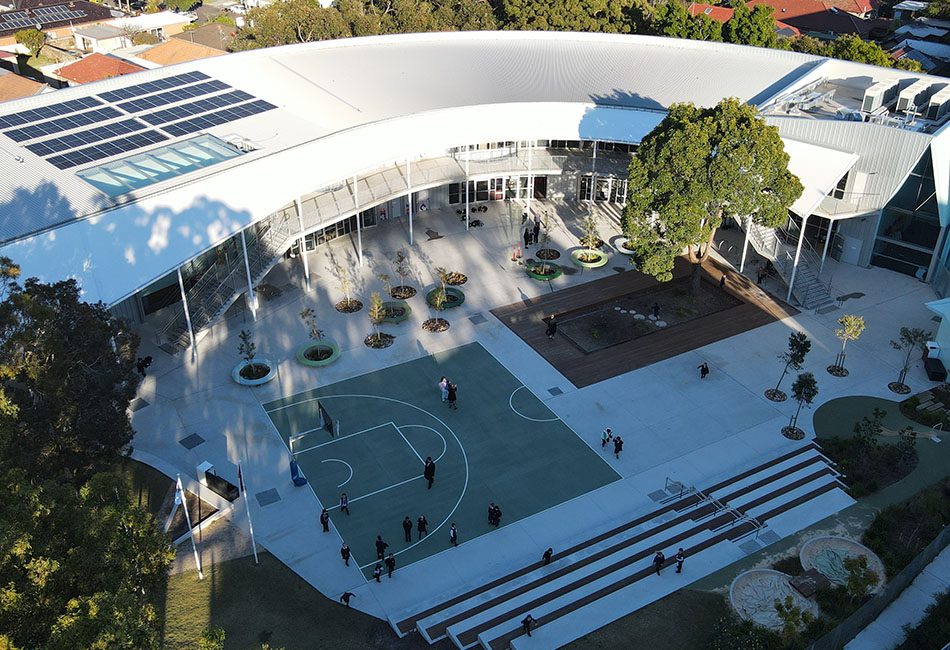The cliche, ‘your eyes will go square’ rings true in lockdown. So writes winner of the 2021 UNSW Bragg Student Prize for Science Writing winner, St John Bosco student Emilia Danne.
In her response to the 2021 theme The STEM in Everyday Life, Year 8 student Emilia explores how online learning during the COVID-19 pandemic is affecting our health.
“I feel extremely humbled to have won the UNSW Bragg Science Writing competition,” Emilia said.
“I was ecstatic when I found out I was chosen from all of the incredible entries from across Australia.
“We rely heavily on our devices every day, but not everyone knows about what blue light is and what it does.
“I hope that my essay can shine the light on the importance of sleep and how our devices are affecting this.”
Read Emilia’s full essay below.
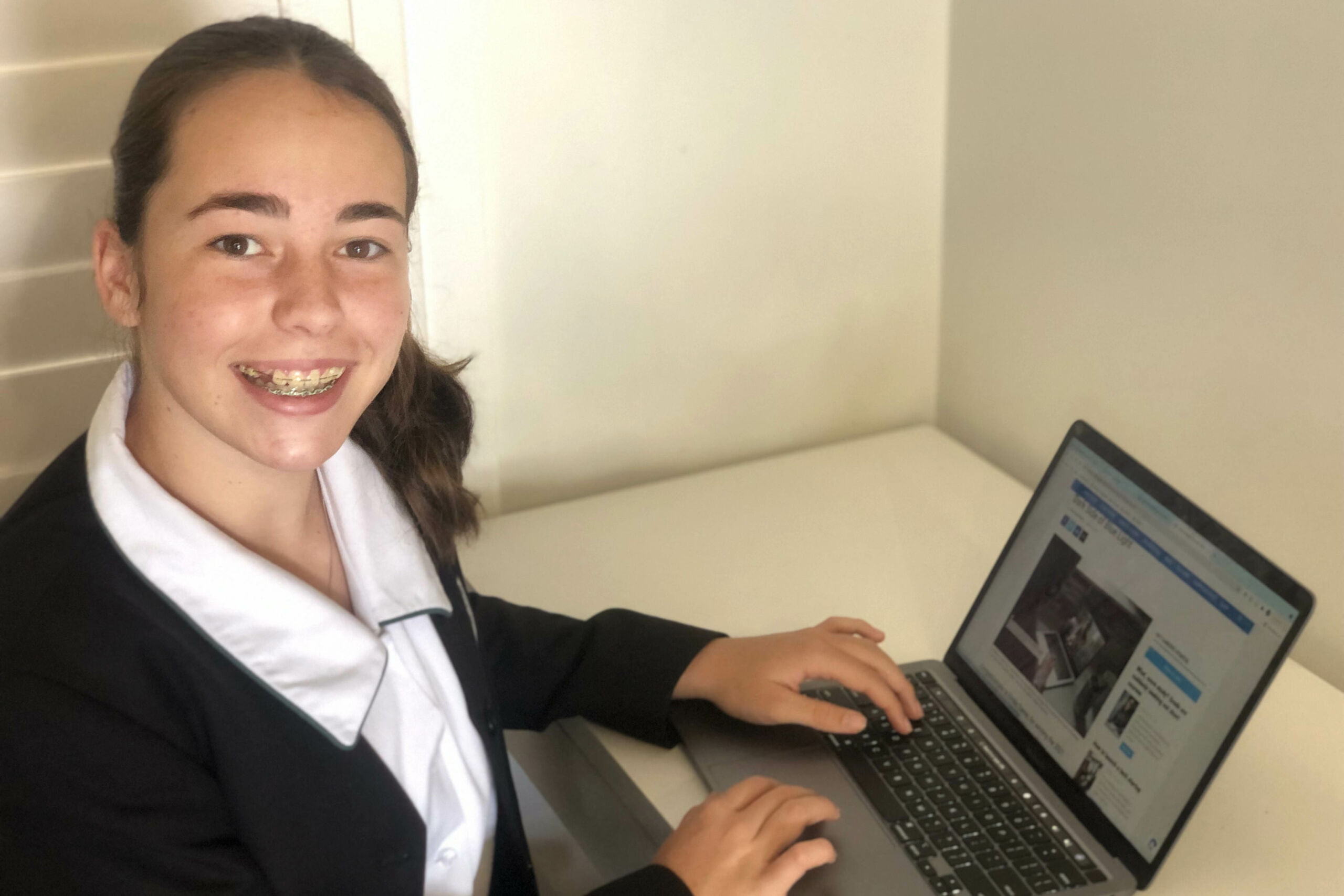
THE DARK SIDE OF BLUE LIGHT
Online learning.
There are two words that strike fear into the lives of parents and caregivers, making them stop dead in their tracks. These two simple words paint a clear picture of utter chaos – online learning.
Sugar-powered siblings and printer problems make home the least ideal place for education. With so much going on in such a small, enclosed domain, it’s easy to forget for how long someone has been staring at a screen.
I looked at my average screen time a few weeks ago, only to find that I was at a new, all-time high of eight hours!
Along with millions of other high school children, I’m now spending as much time on a screen as I am sleeping.
The cliche, ‘your eyes will go square’ rings true in lockdown.
Growing up surrounded by technology has allowed the current generation to take full advantage of amazing resources at the tap of a finger. Only in the last decade have we begun to question the effect of such technology on our health.
Inside every device screen lies high energy visible (HEV) light, commonly referred to as blue light. Different types of lights have different wavelengths that they emit and these wavelengths ultimately control the amount of energy that the light issues.
Because blue light has such short wavelengths, it emits a high amount of energy. This can cause some dire health risks.
The human brain is home to a staggering 86 billion miniscule processing units called neurons.
The brain never switches off.
Sleeping is a vital human behaviour, but our sleep patterns are controlled by the electrical and chemical signals influenced by what we do during the day.
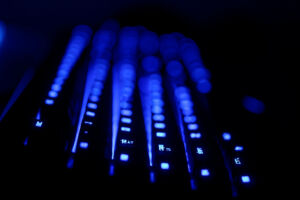 When the sun is shining, our neurotransmitters (chemical postmen of information) are alert and highly responsive. This also translates to our muscular system which becomes ready for motion. Counter to this, throughout the day our neurons slowly begin to break down ATP (adenosine triphosphate), which is an energy-carrying organic compound.
When the sun is shining, our neurotransmitters (chemical postmen of information) are alert and highly responsive. This also translates to our muscular system which becomes ready for motion. Counter to this, throughout the day our neurons slowly begin to break down ATP (adenosine triphosphate), which is an energy-carrying organic compound.
Similar to many processes in life, there is a byproduct – this byproduct is called adenosine – and it’s the key to triggering the neurons responsible for sleep control.
There is a reason it takes willpower to get up early.
Our brain and body functions live by their own congenital clock, sometimes referred to as the master biological clock, which controls our sleep hormones. This clock forms rhythms based on the 24 hours in each day and how the earth resembles this (day and night). These are called circadian rhythms.
You can see how this natural cycle would be affected by artificial light sources.
Your circadian rhythms are the heart of what makes you go to sleep and wake up.
There is a particular hormone that gets released into the bloodstream by the circadian rhythm that is essential for a good night’s rest. This hormone is called melatonin (a chemical lullaby produced in our brains) and for some people, including myself, bodies don’t naturally produce an effective amount to kickstart their circadian rhythm.
I was prescribed melatonin tablets, to add to the amount that my body produces. Melatonin helps people get to sleep, but more importantly, stay asleep to get to the stage where your sleep becomes deep and restorative.
One of the things that diminished my lack of melatonin was blue light. Blue light emits high energy waves, which allows it to penetrate deep into the retina.
Our bodies use signals from the retina to decide on the right moment for the ATP to break down, circadian rhythm to begin and melatonin to be produced. So when we are looking at screens in the evening, our body is receiving such high energy waves of light that it is picking up all the signals to stay awake.
The body does what it is supposed to do when the sun is shining, it suppresses melatonin. You can think of the suppression of melatonin like a garden hose – when you step on it not nearly as much water is going to come out. By this suppression of melatonin, the body lacks the essential chemical lullaby that helps us sleep, which is a vital human behaviour.
We need a good quantity of sleep, but research suggests that getting quality sleep can be just as beneficial.
How can we be expected to sleep well when we are lacking one of the most essential parts of the whole process? The blue light in devices could be affecting you more than you know.
It’s not all doom and gloom though, as not viewing a device for at least an hour before bed could send your brain the right signals.
If sleep is so important to us, we should make it a priority.
By: EMILIA DANNE
ABOUT THE BRAGG PRIZE
An initiative of UNSW Press, UNSW Science and Refraction Media, the Bragg Prize is designed to encourage and celebrate the next generation of science writers, researchers and leaders.
For the 2021 UNSW Bragg Student Prize for Science Writing Australian high school students were asked to enter 800-word essays responding to the 2021 theme: The STEM in Everyday Life.

